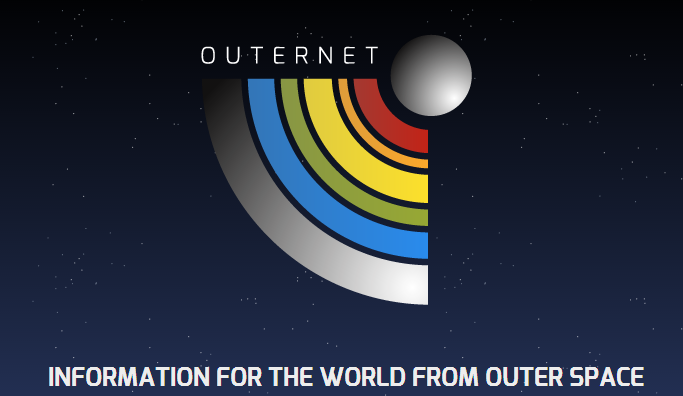Introducing The Outernet: Free, Worldwide Wi-Fi Access Beamed From Space

Forget what you know about the Internet, especially the part where you have to pay to access it.
A New York City-based company, the Media Development Investment Fund, plans to launch hundreds of low-cost miniature satellites known as “cubesats” into orbit around the Earth to create the Outernet, a wireless connection to the Web available for free to every person in the world. If everything goes according to plan, the Outernet could be here as soon as June 2015.
Each cubesat receives data from a network of ground stations around the world and transmits this information on a loop until new information is received. This means using the Outernet will be more like watching a program broadcast on TV, though Outernet users will build a priority list for the information they want and make suggestions for new content.

One of the leaders of the Outernet project, Syed Karim, told Reddit that most of the technology has been done by other small satellite programs and experiments.
“We have a very solid understand[ing] of the costs involved, as well as experience working on numerous spacecraft,” Syed Karim said. “There’s really nothing that is technically impossible to this.”
In addition to providing free access, the Outernet will also be universally available, allowing people to bypass censorship laws in countries like China and North Korea. MDIF also hopes the Outernet will create a global notification system during emergencies and natural disasters.
“It’s the modern version of shortwave radio, or BitTorrent from space,” the Outernet’s official website said.
Only 60 percent of the global population has access to the Internet, a problem Google and Facebook are both attempting to solve with ambitious projects of their own.
“Access to knowledge and information is a human right, and Outernet will guarantee this right by taking a practical approach to information delivery,” Outernet’s website said. “Lack of an Internet connection should not prevent anyone from learning about current events, trending topics and innovative ideas.”
MDIF is hoping to raise millions of dollars in donations to get the Outernet off the ground. The goal is to have prototype satellites developed by this June. By September, MDIF is hoping NASA will give permissions to test Outernet technology on the International Space Station.
© Copyright IBTimes 2024. All rights reserved.






















